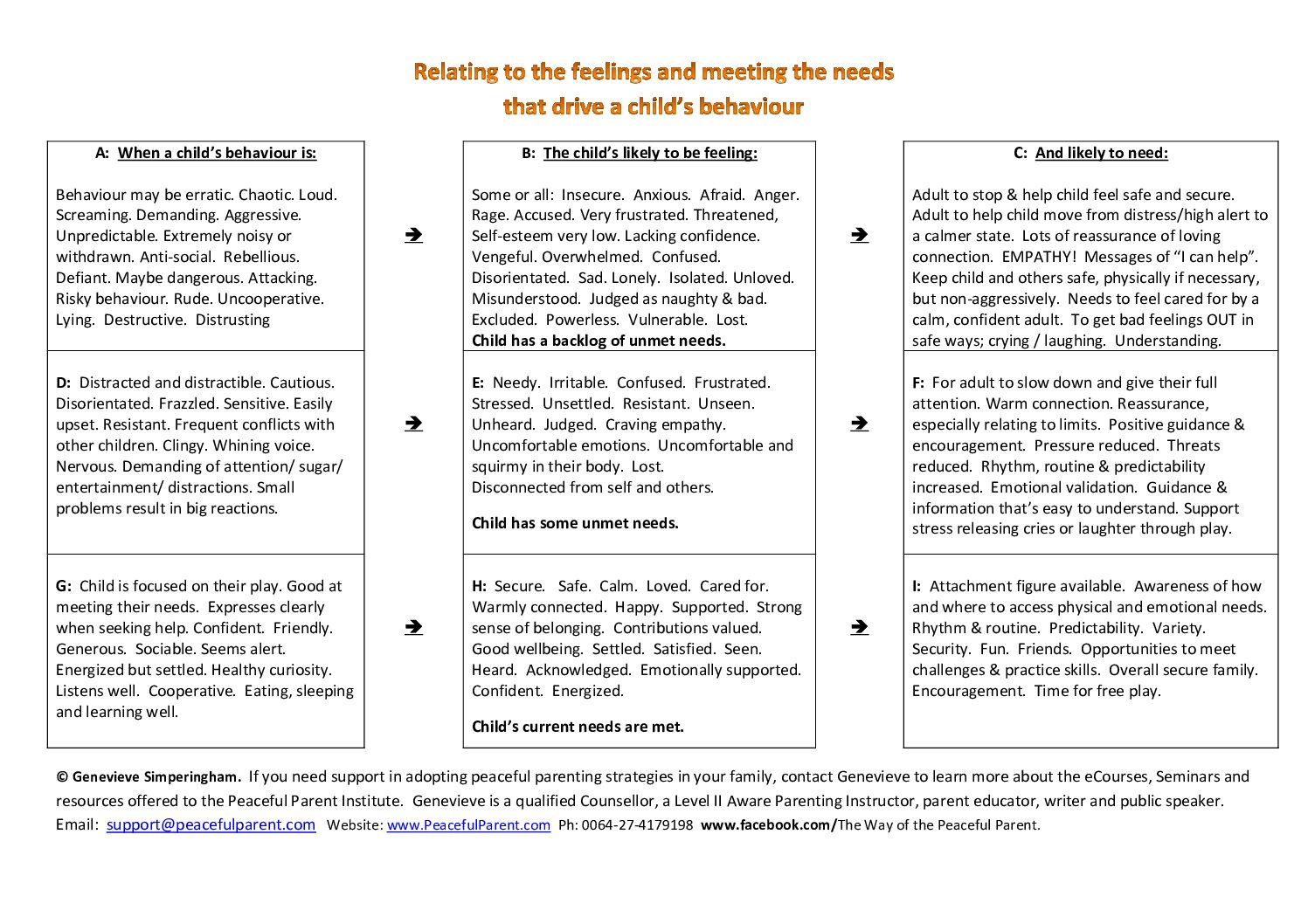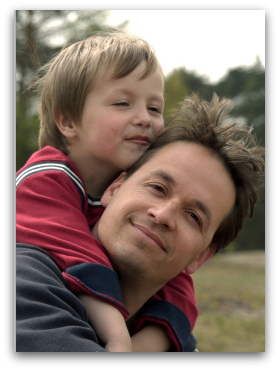The courage to walk the path less travelled.
Just as it’s often said that in business we need to spend time working on the business, not just in the business, the same is true of our parenting. It’s hard to carve out the time to stop and reflect on the bigger picture and think about the qualities we’re instilling in our children. Yet just the act of reading this article, is likely indicative of you creating the time to reflect, to learn and to grow as a parent. And how beautiful is that!
Parents who put the hard yards into practicing peaceful and gentle parenting, understand why it’s important to avoid instilling obedience training. This understanding helps us remember that it’s worth the extra work, when it would be easier to lay down the law and enforce punishments for lack of compliance.
When your child was a baby, you likely already made non-conventional choices that made life harder at the time, but you believed in the long term benefits. Whether your choices related to breastfeeding, food choices, co-sleeping, babywearing or cloth nappies, you likely made choices based on your values rather than convenience. For parents dedicated to being more conscious and mindful, we know how important it is to create a family culture that is a practice ground to develop life skills, setting our children up for success.
Instilling a value and tolerance for differences
You likely practice peaceful parenting because you understand the pitfalls of training children to simply do what they’re told to do and believe what they’re told to believe.
We understand that authoritarian parenting conditions kids to accept a hierarchical, power-over structure. This tends to result in children accepting authoritarian systems which dictate rules with little tolerance for differences or opposition. But because autonomy is a basic need, we see much rebellion and unhealthy behaviour during teenage years as kids fight to regain individuality.
Instead, we aim to listen with empathy to our children’s feelings and perspectives and reflect that all voices in the family matter. We know that this gives children the skills to listen to the perspectives of others. We use I statements, we facilitate conflict resolution, we hold family meetings and we avoid shaming.
The courage to walk their unique path based on their values
We aim to help our children maintain their dignity even when they break the rules. We hope that this equips them with a set of skills to help them navigate conflicts, differences and challenges throughout life. And we hope that our hard work results in our children developing the courage and strength to walk their unique path. A path based on their values and what feels right even when it evokes opposition or judgment from others.
Peaceful parenting is a path of activism
Each parent who practices peaceful gentle parenting and holistic lifestyle choices, to one extent or another, is walking a path of activism. Walking a path less travelled often challenges the more mainstream choices of others. This is largely true even for parents who try to be as discreet and private about their choices as possible.
Our kids are watching and downloading messages all the time
Our children witness and learn from how we navigate the challenges of differences. For instance, in a social or extended family situation, your difference of approaches will be noticed by other adults as soon as your child experiences some sort of conflict, be it with other children or an adult. Perhaps the child reacts to a relative in a way that the adult experiences to be rude. Or they get into a conflict with a friend about whose turn it is on the swing.
Once you intervene in a way that’s more about connection, listening and facilitating problem-solving, it will be noticed that your approach is “different”. The lack of an authoritarian intervention is often viewed to be permissive and lacking in parental leadership. Tensions can build if the other adult judges you to be neglectful or “pandering” to the child. You may be already working hard to manage your own emotional reaction to your child, and now have the added challenge of tension with the other adult.
Although potentially stressful, these very complex situations provide a rich learning ground for parent and child alike.
Your child is witnessing and absorbing how we manage our own emotions in these situations. The way that decision making, differences and conflicts are dealt with in the family and in our community are continually imprinting our children with the blueprint for dealing with such challenges during childhood and into adulthood.
Using the example of our child being in a conflict with a cousin or friend in a social situation, let’s explore how different responses instil different values in our child:
- When a parent who is normally more patient and empathic at home takes the more authoritarian approach in public and simply give out to the kids rather than helping them, this inadvertently gives a message to our child that we should act in the way that people expect us to act to avoid causing tension.
- If we stay silent when another adult is harshly critical of our child it can result in our child feeling misunderstood and a sense of injustice.
- Defending our child and becoming overly critical of the other child or the other adult can model taking an antagonistic us-versus-them approach.
- If we leave the kids to struggle with their conflict while having an argument with the other adult, our child may feel advocated for, but this may also instil an us-versus-them mindset.
Our child is dealing with conflict with the other child, and also feels caught up in the conflict between the adults. If we respond calmly to the other adult “let me see if I can help them”, and then listen to each child and patiently help them work it out, then this models the importance of doing the right, fair and kind thing despite pressure from others.
A growth mindset is about being open to new information even when we believe we’ve made up our mind
When it comes down to it, the skills we need to keep developing to navigate differences with other adults are the same set of skills we need to keep developing in our daily parenting. Listening to all voices and aiming to maintain connection despite differences is one of the most important skills. This again requires empathy to tune in to the perspective and feelings of others. And the resilience to keep coming back to feeling solid and at peace in ourselves despite differences.
So many hot topics to navigate!
I’m writing this article in June 2020, a time of great change, uncertainty and unrest in most places around the world. We humans naturally have a great need to feel safe and secure. Yet currently so many people feel unsafe and insecure at quite a core level.
Whether it’s the threat of environmental disasters, job security, financial threats, viruses, vaccines, border restrictions, political unrest, racial tensions, the tyranny of globalists who create and maintain wars, poverty or huge injustices. Threats are local and global and the list goes on and on. When tensions are high, there’s generally a higher risk of conflict and of topics becoming polarized.
In this information age, it’s never been harder to discern truth from fiction
Most adults struggle to stay calm, collected and confident when dealing with big challenges in life. They find it stressful when differences of opinions, beliefs and values arise in communication. It doesn’t matter if it is with family, friends or even strangers on the internet.
In this information age, it’s perhaps harder than ever to figure out what our truth is. Sometimes it’s harder again to have the courage to stand by and take the right action based on what we believe to be our truth. Especially if what we believe isn’t affirmed by the majority.
Modelling maintaining respect despite differences
You help your child develop their critical thinking and empathy when you make space for many different ideas, perspectives and feelings. You help your child be more skilled at listening to and making space for different views from others when you maintain the connection with them at times of differences and conflict in the family. You teach them to maintain respect for others despite differences when you communicate in a non-shaming way when reflecting to them that which is hard for them to hear. The more parents patiently practice these more peaceful respectful ways of communicating, and yes it does take a lot of patience, the more your child can strike the balance between walking their unique path even in the face of opposition and doing so as peacefully as possible. Respectful communication and care in the family helps our children develop a value for listening to different ideas, perspectives and feelings in social situations.
A growth mindset is about being open to new information even when we believe we’ve made up our mind
When it comes down to it, the skills we need to keep developing to navigate differences with other adults are the same set of skills we need to keep developing in our daily parenting. Listening to all voices and aiming to maintain connection despite differences is one of the most important skills. This again requires empathy to tune in to the perspective and feelings of others. And the resilience to keep coming back to feeling solid and at peace in ourselves despite differences.
So many hot topics to navigate!
I’m writing this article in June 2020, a time of great change, uncertainty and unrest in most places around the world. We humans naturally have a great need to feel safe and secure. Yet currently so many people feel unsafe and insecure at quite a core level.
Whether it’s the threat of environmental disasters, job security, financial threats, viruses, vaccines, border restrictions, political unrest, racial tensions, the tyranny of globalists who create and maintain wars, poverty or huge injustices. Threats are local and global and the list goes on and on. When tensions are high, there’s generally a higher risk of conflict and of topics becoming polarized.
In this information age, it’s never been harder to discern truth from fiction
Most adults struggle to stay calm, collected and confident when dealing with big challenges in life. They find it stressful when differences of opinions, beliefs and values arise in communication. It doesn’t matter if it is with family, friends or even strangers on the internet.
In this information age, it’s perhaps harder than ever to figure out what our truth is. Sometimes it’s harder again to have the courage to stand by and take the right action based on what we believe to be our truth. Especially if what we believe isn’t affirmed by the majority.
Modelling maintaining respect despite differences
You help your child develop their critical thinking and empathy when you make space for many different ideas, perspectives and feelings. You help your child be more skilled at listening to and making space for different views from others when you maintain the connection with them at times of differences and conflict in the family. You teach them to maintain respect for others despite differences when you communicate in a non-shaming way when reflecting to them that which is hard for them to hear. The more parents patiently practice these more peaceful respectful ways of communicating, and yes it does take a lot of patience, the more your child can strike the balance between walking their unique path even in the face of opposition and doing so as peacefully as possible. Respectful communication and care in the family helps our children develop a value for listening to different ideas, perspectives and feelings in social situations.
Luckily we have 20 or more years to keep practising!
As parents, we are all invariably faced with such challenges throughout our years of parenting. Some challenges are smaller like our kid not wanting to share. Some will be way bigger, especially throughout the teenage years! It’s a good thing it takes so many years for our kids to reach adulthood because oh boy is there a lot to learn, change, improve and practice! Mostly of course, we’re learning through not dealing with these situations very well. But the aim is to keep reflecting and talking with our children after difficult events as that’s when the richest learning happens.
My children are now adults…
Right from the beginning of being a parent, I experienced the judgment and defensiveness of many who chose more traditional approaches in their parenting. I was also aware from the beginning that the messages and early childhood conditioning (or hypnosis as I think of it) that my children received were different in many ways from the messages imprinted on children in more mainstream families. I knew they would have the challenges of noticing those differences as they got older. I was often concerned about how they would cope with these differences and the potential social impacts. These are common concerns of many parents who chose to walk a path less travelled in their parenting and lifestyle choices.
As humans have deep primal drives to “fit in” in our families and our communities. This works well when individuality is supported. It becomes difficult when the message is received that to fit in there is a need to be loyal to the beliefs and practices of the family or social group. Hopefully, your child can feel confident that they’ll still be loved and heard even when they challenge their parents.
You will have set your child, teen, then adult up for success if they…
- have learned how to listen to their inner voice
- have learned how to be discerning of others, especially professionals and authority figures
- continue to learn and grow with a truly critical and discerning mind
- have the humility to admit mistakes but can maintain inner peace at such times
- learn to have enough respect for the diversity of others to truly listen with an open mind and heart even when they’ve made up their mind.
A whole new generation with this kind of growth mindset could radically change the world for the better!
Our kids should feel pride, rather than shame, about our differences
In more recent years, it’s been interesting to also hear my children’s thoughts on this. One day I was talking with my daughter about how I sometimes feel guilty for bringing them up in a family culture that differs from the mainstream in so many ways. My daughter’s thoughts really surprised me!
She said that we should never regret having to deal with feeling misunderstood when we know that our decisions are based on our values. That I should be proud that my kids will challenge racism and sexism when they experience it; that they will question the advice of professionals; that they are sensitive to the mistreatment of animals. Generally, they are able to feel proud of their differences instead of shame!
Genevieve Simperingham is a Psychosynthesis Counsellor, a Parenting Instructor and coach, public speaker, human rights advocate, writer and the founder of The Peaceful Parent Institute. Check out her articles, Peaceful Parenting eCourses, forums and one-year Peaceful Parenting Instructor Training through this website or join over 90,000 followers on her Facebook page The Way of the Peaceful Parent.









